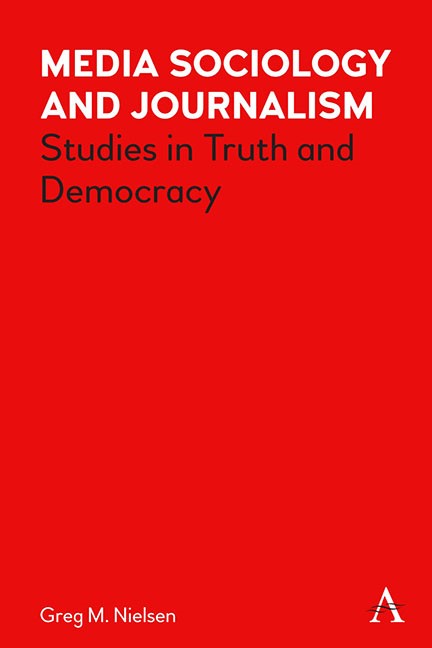Book contents
- Frontmatter
- Contents
- Acknowledgments
- Introduction: Between The Posts
- 1 Fake Populism and News: Freedom versus Democracy
- 2 Political Theory: Deliberative, Agonistic and Dialogic Democracy
- 3 Contemporary Sociology, Journalism and Society
- 4 Acts of Journalism: Truth, Ghosts and Migrant Subjects
- 5 Writing Inequality into the Urban Commons
- 6 Exotopy and Cultural Boundaries: The Secular Question in Quebec
- Conclusion: Is Another Journalism Possible?
- References
- Index
4 - Acts of Journalism: Truth, Ghosts and Migrant Subjects
Published online by Cambridge University Press: 15 November 2023
- Frontmatter
- Contents
- Acknowledgments
- Introduction: Between The Posts
- 1 Fake Populism and News: Freedom versus Democracy
- 2 Political Theory: Deliberative, Agonistic and Dialogic Democracy
- 3 Contemporary Sociology, Journalism and Society
- 4 Acts of Journalism: Truth, Ghosts and Migrant Subjects
- 5 Writing Inequality into the Urban Commons
- 6 Exotopy and Cultural Boundaries: The Secular Question in Quebec
- Conclusion: Is Another Journalism Possible?
- References
- Index
Summary
Travel Ban
Miami Herald:
“It’s a human disaster,” Kholoud said through a translator. “It was humiliating leaving Syria. Walking through the desert for days. Women. Children. Elderly people. We didn’t know if we would be allowed into Jordan or turned back to Syria.” (Allamhallam 2017)
Family Separation
New York Times:
“On Feb. 20, a young woman named Miriam arrived at the Texas border carrying her 18-month-old son. They had fled their home in Honduras through a cloud of tear gas, she told border agents, and needed protection from the political violence there. She had hoped she and her son would find refuge together. Instead, the agents ordered her to place her son in the back seat of a government vehicle, she said later in a sworn declaration to a federal court. They both cried as the boy was driven away.” (Dickerson 2018)
Pandemic
Los Angeles Times:
“Scores of tents are pitched side by side, some home to as many as six people. Residents wash at communal showers and sinks, line up in tight queues for evening meals, and gather after dark to socialize and sing evangelical melodies. Smoke from campfires and swirling dust nurture colds, coughing jags and a wide range of other respiratory ailments.
The rudimentary conditions faced by some 2,000 asylum seekers camped out here along the Rio Grande have long been denounced” (McDonnell 2020a)
Theorizing the unsettled relationship between truth and democracy and the special power of the press means explaining what constitutes an act of journalism. Actor-Network theory is not focused on what an act of journalism is, nor on who acts of journalism are for, but on contacts between actants that do journalism and on seeking out transformative mediators. Cultural sociology defines acts of journalism as performances that shape collective representations, contribute to a stable civic sphere and are not reducible to economic or political structures. Critical sociology seeks to address enduring forms of domination at both the level of the act and from the vantage of a totality of social relations. At a pragmatic level an act of journalism is not a simple conversation between the journalist and actual readers, but a more implicit exchange that takes place in the anticipation of an audience’s imagined interest in the subject.
- Type
- Chapter
- Information
- Media Sociology and JournalismStudies in Truth and Democracy, pp. 93 - 124Publisher: Anthem PressPrint publication year: 2023



